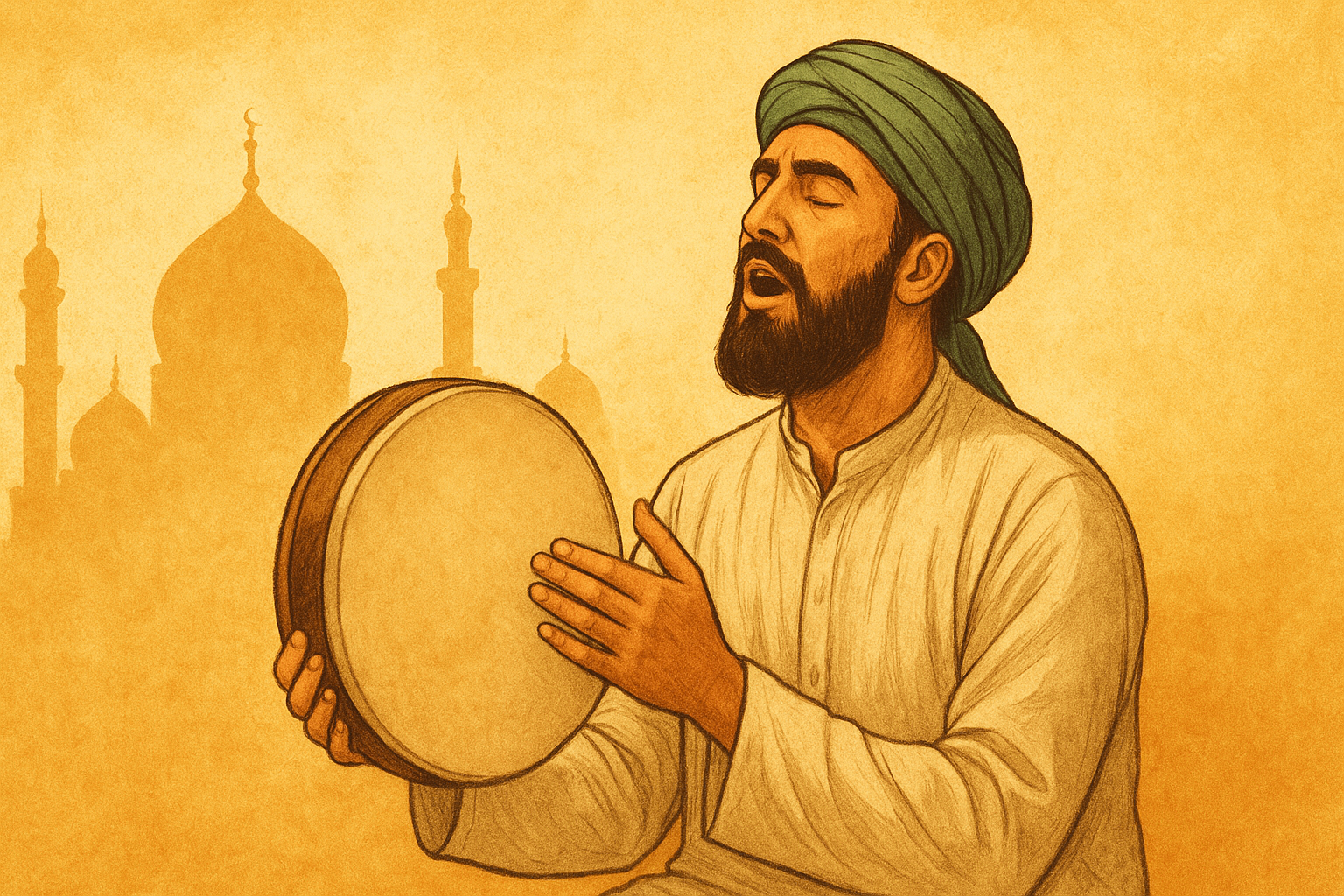
Nasheeds: A Sacred Islamic Tradition
June 9, 2025
As-Salaamu Alaikum wa Rahmatullahi wa Barakatuh,
Nasheeds, the soul-stirring Islamic vocal melodies, have been a cherished part of Muslim tradition since the time of the Prophet Muhammad ﷺ. These devotional songs express love, reverence, and longing for the Beloved Messenger of Allah ﷺ, uniting hearts across centuries and continents.
The Origins of Nasheed in the Prophetic Era
The tradition of nasheed finds its roots in the blessed Sunnah. The Companions (عليه السلام) would recite poetry and sing hymns praising the Prophet ﷺ during his lifetime. One famous example is the Burdah (The Prophet’s Mantle), a tradition that later inspired the immortal Qasidat al-Burdah by Imam Al-Busiri (عليه السلام).
The Legacy of Imam Al-Busiri and the Burdah Sharif
The great Sufi poet and Companion of the heart, Imam Sharafuddin Muhammad Al-Busiri (عليه السلام), composed the Qasidat al-Burdah in the 13th century. It is said that after suffering from paralysis, he sought the intercession of the Prophet ﷺ through his poetry. In a dream, the Prophet ﷺ draped his blessed mantle (burdah) over him, curing him miraculously. This poem, filled with deep love and devotion, remains one of the most recited nasheeds in Islamic history.
“If it were not for his radiant beauty,
The sun would not have spread its light across the lands.”
— Excerpt from the Burdah Sharif
Nasheeds in Al-Andalus: A Symphony of Love
In the golden age of Al-Andalus (Islamic Spain), nasheeds flourished alongside scholarly and artistic achievements. The Muslims of Andalusia composed beautiful hymns in Arabic and local dialects, expressing their ishq (divine love) for the Prophet ﷺ. These nasheeds were often accompanied by simple instruments like the daff (hand drum), as permitted by many scholars for devotional purposes.
The Spiritual Power of Nasheed
Nasheeds are not mere songs; they are a means of dhikr (remembrance), sending salawat (blessings upon the Prophet ﷺ), and awakening the heart to divine love. As Shaykh Nurjan Mirahmadi ق reminds us, the essence of nasheed is to connect the believer’s soul to the luminous presence of the Prophet ﷺ.
Today, nasheeds continue to inspire millions—from the classical recitations of the Burdah to the soulful melodies of Al-Andalus and modern Islamic artists. Let us keep this beautiful tradition alive, singing with love and devotion for the Best of Creation ﷺ.

